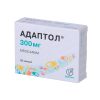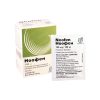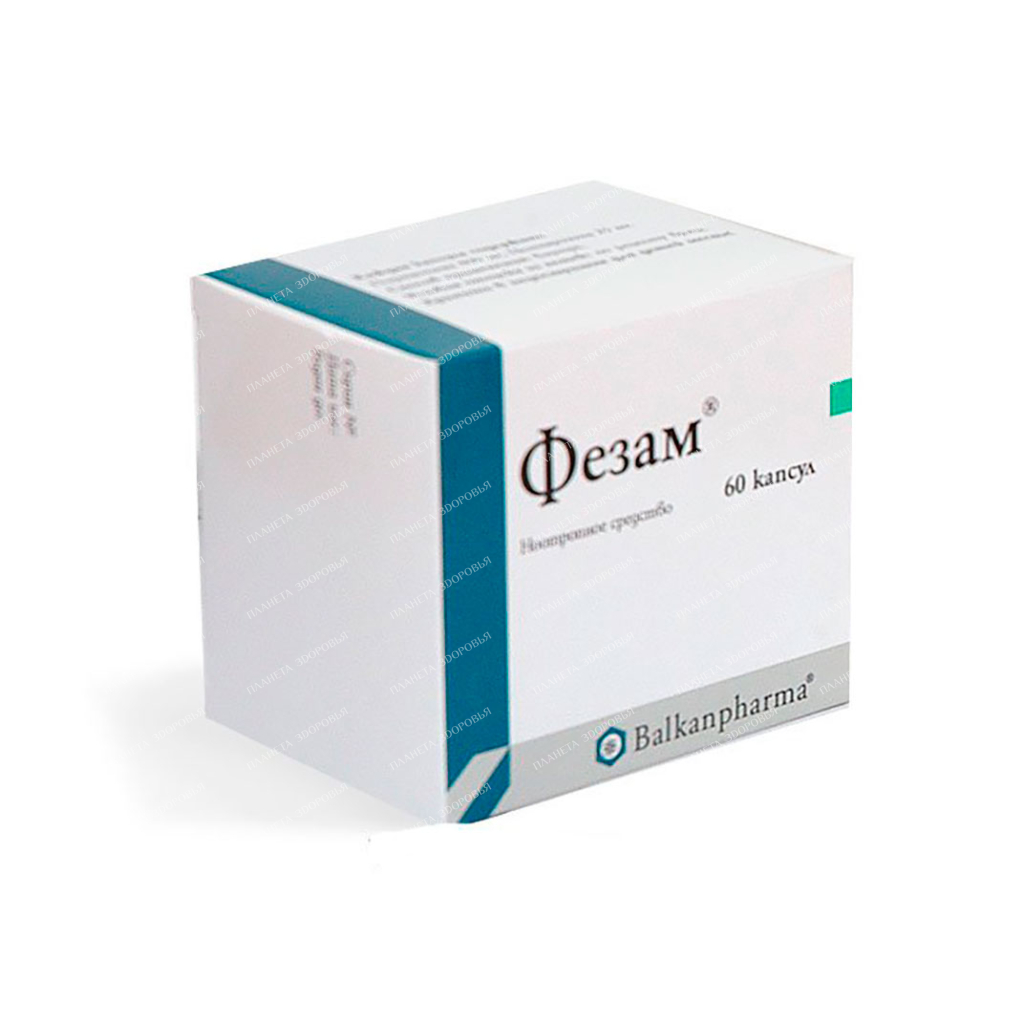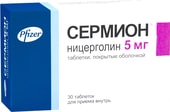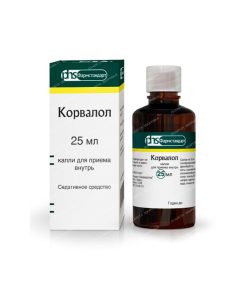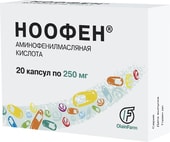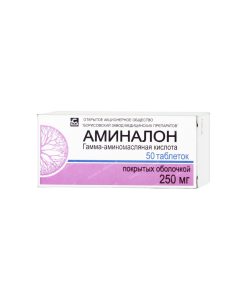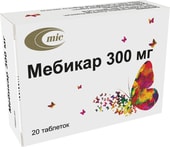Phezam Capsules 400mg/25mg №10×6: Enhance Cognitive Function & Improve Microcirculation
Description:
Phezam capsules combine the power of piracetam and cinnarizine, two effective ingredients known to improve cognitive function and enhance microcirculation. Each capsule contains 400mg of piracetam, a nootropic agent that enhances cognitive functions and improves microcirculation, and 25mg of cinnarizine, a vasodilator that inhibits vascular smooth muscle contraction, further improving microcirculation and reducing vestibular system stimulation.
Benefits:
- Enhanced Cognitive Function: Phezam supports improved memory, concentration, and overall cognitive function.
- Improved Microcirculation: The combination of piracetam and cinnarizine enhances blood flow to the brain, promoting optimal oxygen delivery and reducing dizziness.
- Relief from Vestibular Disorders: Effective in treating symptoms of labyrinth and vestibular disorders of vascular origin, including Meniere’s syndrome.
Key Features:
- Convenient Capsules: Easy to swallow capsules for convenient daily dosing.
- Targeted Formula: Specifically formulated to address cognitive decline and improve microcirculation.
- High-Quality Ingredients: Manufactured with high-quality ingredients for optimal efficacy and safety.
Indications for Use:
Phezam is indicated for:
- Symptomatic treatment of memory disorders and intellectual impairment in the absence of dementia.
- Symptomatic treatment of chronic psychoorganic syndrome.
- Symptomatic treatment of labyrinth and vestibular disorders of vascular origin, including Meniere’s syndrome.
Contraindications:
Phezam is contraindicated in cases of:
- Individual intolerance to piracetam or pyrrolidone derivatives, or other components of the medicine.
- Psychomotor agitation at the time of drug administration.
- Huntington’s chorea.
- Acute violation of cerebral circulation (hemorrhagic stroke).
- Parkinsonism.
- Terminal stage of chronic renal failure (creatinine clearance less than 20 ml/min).
- Pregnancy and lactation.
Precautions:
- Renal Impairment: Dose adjustment is necessary in patients with impaired renal function.
- Hepatic Impairment: Extreme caution is required in patients with hepatic impairment.
- Intraocular Pressure: Use with caution in conditions associated with increased intraocular pressure.
- Parkinson’s Disease: Cinnarizine may exacerbate symptoms.
- Drowsiness: Cinnarizine may cause drowsiness, especially at the beginning of treatment. Avoid alcohol and CNS depressants.
- Porphyria: Cinnarizine should be avoided in porphyria.
- Doping: Phezam may cause a positive reaction in doping tests due to cinnarizine.
- Skin Allergy Tests: Phezam may affect the results of skin allergy tests.
- Hemostasis: Caution is required in patients with impaired hemostasis, surgical intervention, risk factors for bleeding, or taking anticoagulants or antiplatelet agents.
Drug Interactions:
- Thyroid Hormones: Reports of confusion, irritability, and sleep disturbance with simultaneous use.
- Indirect Anticoagulants: Increases effectiveness of indirect anticoagulants at high doses.
- Antiepileptic Drugs: Does not significantly alter serum concentrations of antiepileptic drugs.
- Alcohol & CNS Depressants: Increases sedative effects.
- Tricyclic Antidepressants: Increases sedative effects.
- Skin Allergy Tests: Cinnarizine may mask positive skin test reactions.
Dosage and Administration:
For adults, the recommended dosage is 1-2 capsules 3 times a day for 1-3 months, depending on the severity of the condition. The duration of treatment is determined by the doctor. Dose adjustments are necessary for patients with renal impairment and elderly patients.
Side Effects:
Phezam may cause side effects, although not everyone experiences them. Possible side effects include:
- Hemorrhagic disorders
- Anaphylactoid reactions
- Hypersensitivity
- Hyperactivity
- Drowsiness
- Ataxia
- Imbalance
- Convulsions
- Exacerbation of epilepsy
- Headaches
- Insomnia
- Tremor
- Dyskinesia
- Extrapyramidal disorders
- Parkinsonism
- Dizziness
- Abdominal pain
- Pain in the upper abdomen
- Diarrhea
- Vomiting
- Nausea
- Quincke’s edema
- Dermatitis
- Pruritus
- Urticaria
- Hyperhidrosis
- Lichen keratosis
- Lichen planus
- Lupus-like reaction
- Photosensitivity
- Increased libido
- Weight gain
- Asthenia
- Muscle stiffness
Overdose:
In case of overdose, seek immediate medical attention. Symptoms may include altered consciousness, vomiting, extrapyramidal symptoms, arterial hypotension, convulsions, and dyspeptic symptoms.
Storage:
Store at a temperature not exceeding 25°C. Keep out of reach of children.
Shelf Life:
3 years. Do not use after the expiry date printed on the package.
Availability:
Available by prescription only.
Buy Phezam Capsules 400mg/25mg №10×6:
[Link to online pharmacy or store]
Note: This information is for general knowledge and does not constitute medical advice. Consult a healthcare professional before using Phezam or any other medication.
| INN | PIRACETAM+CINNARIZINE |
|---|---|
| The code | 1 712 |
| Barcode | 3 800 712 045 118 |
| Dosage | 400mg/25mg |
| Active substance | Piracetam, cinnarizine |
| Manufacturer | Balkanpharma-Dupnitsa AD, Bulgaria |
| Importer | Foreign unitary trade and manufacturing enterprise "Belinvestfarma", Minsk, Leshchinskogo st., 8/4-2; Komfarm LLC, Minsk, 220131 Minsk, Sosnovy Bor st., 4, office 1; Limited Liability Company "Farmiko", Minsk district, Senitsky s / s, Kolyadichi village, Lazurnaya st., 9; Additional Liability Company "Farmin", 220125 Minsk, Independence Avenue, 177, room 62; IOOO "Interfarmaks", Republic of Belarus, 223028, Minsk region, Minsk district, Zhdanovichsky s / s, ag. Zhdanovichi, st. Zvezdnaya, 19A-5, pom. 5-2 |
Related products
Neurological Health
Neurological Health
 Free worldwide shipping on orders $99+
Free worldwide shipping on orders $99+  US: temporary delays — postal services aligning new import rules,
US: temporary delays — postal services aligning new import rules,  EU: 1–2 weeks,
EU: 1–2 weeks,  Worldwide: 1–4 weeks
Worldwide: 1–4 weeks 

